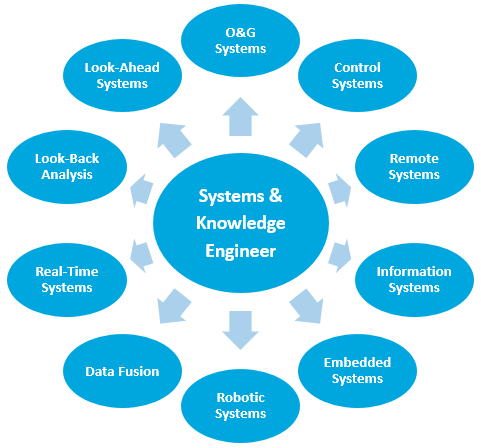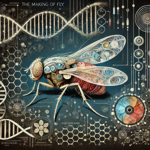 In recent years, software, analytics, and the digital oilfield fields have undergone significant transformation. Reflecting on this journey, I’ve been fortunate to witness and contribute to its evolution firsthand.
In recent years, software, analytics, and the digital oilfield fields have undergone significant transformation. Reflecting on this journey, I’ve been fortunate to witness and contribute to its evolution firsthand.
Early Days: The Foundation of Transformation
Back in 2010-2011, my team embarked on creating a 24-7 operations center. At the time, our vision focused on teams of operations engineers manually overseeing up to four active operations. While we understood the potential value, the specific methods to unlock it were unclear. The focus was not on micromanaging field operations but rather on optimization and proactive problem-solving.
Validation soon came from three independent solution providers, who recognized that our company was pioneering land-based innovation in the U.S. Over time, 24-7 operations centers evolved from optional to essential. Companies now regard them as integral to field operations, whether run in-house or contracted to suppliers, such as rig contractors.
The Evolution of Capabilities
The past decade has seen a shift from raw data collection and simple information-sharing to deep understanding through advanced analytics. These advancements include:
- Predictive Analytics: Leveraging historical and real-time data to forecast potential issues.
- Post-Event Analytics: Analyzing incidents to improve future operations.
- Case-Based Reasoning: Applying lessons learned to new challenges.
- Prescriptive Analytics: Using data insights to recommend actionable solutions.
- Machine Learning: Identifying patterns and refining processes autonomously.
These advancements have turned operations centers into hubs of innovation, integrating data science and engineering for heightened efficiency.
What is Digital Transformation?
 Digital Transformation (DX) refers to the profound change brought about by digital technology across all facets of society and industry. It’s not merely about enhancing existing processes but about enabling new forms of creativity and innovation. George Westerman of MIT Sloan defines DX as the strategic use of technology to enhance a company's performance or reach, often spurred by disruptive new market entrants.
Digital Transformation (DX) refers to the profound change brought about by digital technology across all facets of society and industry. It’s not merely about enhancing existing processes but about enabling new forms of creativity and innovation. George Westerman of MIT Sloan defines DX as the strategic use of technology to enhance a company's performance or reach, often spurred by disruptive new market entrants.
Transformation vs. Disruption
While disruption tends to be chaotic and unpredictable, transformation is a methodical, evolutionary process. A useful analogy is the development of the light bulb: while continuous improvement refined candles, true transformation came with the creation of a new paradigm entirely.
Key examples of digital transformation include:
- Sensors becoming Industrial Internet of Things (IIoT) endpoints.
- Moving from forensic analysis to predictive and preemptive assessments.
- Transitioning from retrospective to real-time anticipatory decision-making.
Digitization, Digitalization, and Digital Transformation
In the realm of technology and innovation, the terms "digitization," "digitalization," and "digital transformation" represent distinct yet interconnected aspects:
- Digitization: The process of converting analog information or processes into digital formats. Examples include scanning photos into digital images or converting paper documents into PDFs.
- Digitalization: The application of digital technology to enhance and interconnect processes, such as using IoT sensors to monitor and control operations.
- Digital Transformation: The strategic integration of digital technologies to innovate and redefine business models, enabling entirely new capabilities and efficiencies.
Planned vs. Unplanned Transformation
Digital Transformation can be meticulously planned or arise haphazardly. Ad hoc transformation often results in incompatible systems and inefficiencies. Thoughtful planning ensures seamless integration and enhanced usability. For instance:
- Planned Transformation: "Alexa, resume my show on the living room TV."
- Unplanned Transformation: "Which remote do I use to turn on the living room TV?"
Why Digital Transformation is Critical
The rapid pace of technological change makes DX a necessity for staying competitive. Seasoned digital pioneers are retiring, giving way to a generation of digital natives who expect real-time insights and data-driven decision-making.
According to Lumina Datamatics, every organization must adopt DX to some extent to remain viable. The focus lies in:
- Operational Agility: Adapting quickly to change.
- Customer Experience: Enhancing user satisfaction through seamless digital interactions.
- Workforce Enablement: Providing tools for efficiency and innovation.
- Integration of Digital Technology: Leveraging algorithms, automation, and real-time data to streamline processes.
Digital Transformation Engineering in Action
Digital Transformation is the engineering behind digitalization. It is a continuous process that requires:
- Strong leadership commitment.
- Advanced analytics and IoT integration.
- Robust systems engineering practices.
Key focus areas for a Digital Transformation Engineer include:
- Base Operations Systems
- Control Systems
- Information Systems
- Real-Time and Look-Ahead Systems
- Data Fusion and Machine Learning Integration
Examples of Success and Failure
- Success: Netflix revolutionized entertainment delivery through digital innovation.
- Failure: Sears, once a leader in mail-order business, failed to adapt to the digital age, while Amazon became a trillion-dollar juggernaut.
 Closing Thought
Closing Thought
Digital Transformation is no longer an abstract concept—it’s a vital reality for organizations striving to remain competitive. The Digital Transformation Engineer plays a pivotal role in bridging technology and operations, ensuring that innovation is seamlessly integrated into every aspect of the business. Success lies not only in adopting new tools but in fostering a culture that embraces change and prioritizes continuous improvement.
Blog by Mark Reynolds, updated December 2024.
References
(1) Gartner IT Glossary
https://www.gartner.com/it-glossary/digitalization/
(2) Mark Reynolds - definition of Digitization
(3) Mark Reynolds - definition of Digitalization
(4) Mark Reynolds - definition of Digital Transformation
(5) What digital transformation really means, Galen Gruman
https://www.infoworld.com/article/2258541/what-digital-transformation-really-means.html
(6) The Nine Elements of Digital Transformation, George Westerman, Didier Bonnet and Andrew McAfee
https://sloanreview.mit.edu/article/the-nine-elements-of-digital-transformation/


